Description
Tretinoin 0.1% cream is a topical medication used to treat acne vulgaris by unclogging pores and reducing inflammation. It is a form of vitamin A that promotes skin cell turnover and helps to prevent the formation of new acne lesions.
To use Tretinoin 0.1% cream, follow these steps:
- Cleanse: Wash your face with a mild cleanser and pat dry with a clean towel.
- Apply: Apply a pea-sized amount of the cream to your fingertips and gently spread it over the affected area, avoiding the eyes, lips, and mucous membranes.
- Wait: Allow the cream to absorb into your skin before applying any other skincare products or makeup.
- Moisturize: Use a light, non-comedogenic moisturizer to prevent dryness and irritation.
- Repeat: Apply the cream once daily, preferably in the evening, as directed by your healthcare provider.
It is essential to follow these steps consistently and as directed to achieve the best results. Avoid using more than the recommended amount, as this may increase the risk of side effects.
Common side effects of Tretinoin 0.1% cream may include redness, peeling, dryness, and irritation. These side effects are usually mild and temporary. If you experience severe or persistent side effects, discontinue the use of the cream and consult your healthcare provider.
Before using Tretinoin 0.1% cream, inform your healthcare provider if you have any allergies, are pregnant, breastfeeding, or taking any other medications. This will help to avoid potential interactions or adverse effects.
Store Tretinoin 0.1% cream at room temperature, away from heat and moisture. Keep it out of reach of children and pets.
Remember, every person’s skin is unique, and results may vary. Consult your healthcare provider for further guidance on the use of Tretinoin 0.1% cream for your specific needs.
BENEFITS:
Tretinoin 0.05% cream offers several benefits for the skin, including:
- Acne treatment: Tretinoin unclogs pores and reduces inflammation, helping to prevent the formation of new acne lesions and improving the appearance of existing ones.
- Anti-aging effects: By promoting skin cell turnover, Tretinoin can help to reduce the appearance of fine lines, wrinkles, and age spots, resulting in smoother, more youthful-looking skin.
- Improved skin texture: Regular use of Tretinoin can help to even out skin tone and improve overall skin texture, resulting in a healthier, more radiant complexion.
- Prevention of future breakouts: By regulating skin cell turnover and reducing the buildup of dead skin cells, Tretinoin can help to prevent future acne breakouts.
It is essential to use Tretinoin 0.05% cream consistently and as directed by your healthcare provider to achieve the best results. Remember to follow the proper application steps and inform your healthcare provider of any allergies, medications, or other health concerns.
SIDE EFFECTS:
Common side effects of Tretinoin 0.05% cream may include:
- Redness: Tretinoin may cause temporary redness or flushing of the skin, particularly in the areas where the cream is applied.
- Peeling and dryness: Tretinoin can cause the skin to become dry and peel, especially during the initial weeks of use. This is a normal part of the skin cell turnover process and should improve over time.
- Irritation and itching: Tretinoin may cause mild irritation or itching in some users. If this persists or becomes severe, consult your healthcare provider.
- Sensitivity to sunlight: Tretinoin can make the skin more sensitive to sunlight, increasing the risk of sunburn. Use a broad-spectrum sunscreen with an SPF of at least 30 and avoid excessive sun exposure while using Tretinoin.
- Changes in skin color: In some cases, Tretinoin may cause temporary changes in skin color, such as lightening or darkening of the skin.
These side effects are usually mild and temporary. If you experience severe or persistent side effects, consult your healthcare provider. It is essential to follow the proper application steps and inform your healthcare provider of any allergies, medications, or other health concerns.
PRECAUTIONS:
Tretinoin cream is a topical medication used to treat acne and reduce the appearance of fine lines and wrinkles. It contains a form of vitamin A called retinoic acid. It is essential to use tretinoin cream as directed by a healthcare professional and take certain precautions to minimize potential side effects and get the most benefit from the treatment.
- Start with a low concentration: Begin with a low concentration of tretinoin cream (0.025% or 0.05%) and gradually increase the strength as your skin adjusts to the medication.
- Apply at night: Apply tretinoin cream at night, as it can make your skin more sensitive to sunlight. Avoid using it during the day, and always wear sunscreen with an SPF of at least 30 during the daytime.
- Use a pea-sized amount: A little tretinoin cream goes a long way. Use a pea-sized amount for your entire face, and apply it only to the affected areas.
- Avoid sensitive areas: Do not apply tretinoin cream to your eyes, mouth, or any other sensitive areas.
- Gradual introduction: Introduce tretinoin cream into your skincare routine gradually. Start by applying it every other night for the first week, and then increase the frequency as your skin adjusts.
- Be patient: Tretinoin cream can take several weeks or even months to show significant improvements in acne or signs of aging. Be patient and consistent with your application.
- Consult your healthcare provider: If you experience severe side effects, such as excessive redness, peeling, or irritation, stop using the cream and consult your healthcare provider.
Remember to always follow the instructions provided by your healthcare professional and use tretinoin cream as part of a complete skincare routine that includes gentle cleansing, moisturizing, and sun protection.
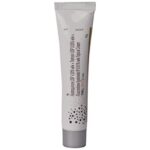
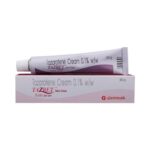
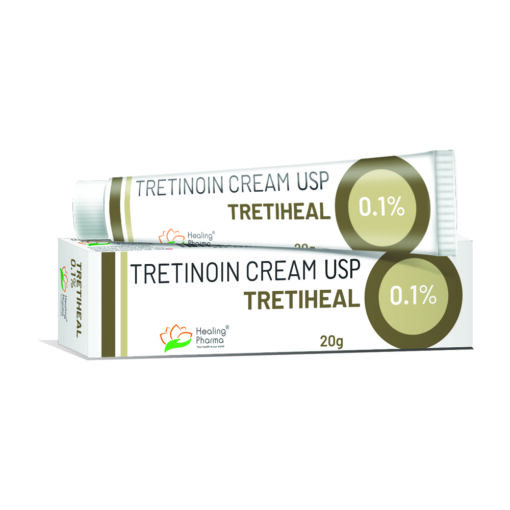
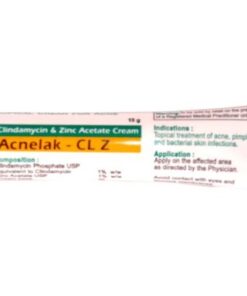
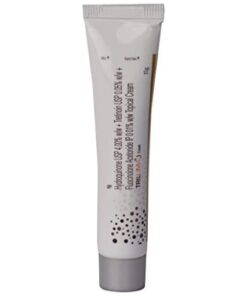
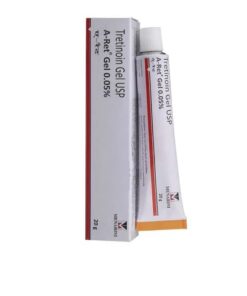
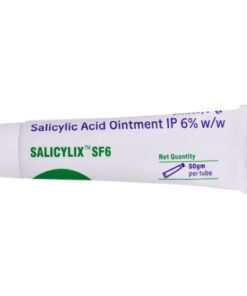
30 reviews for TRETIHEAL CREAM (Tretinoin) 0.1%